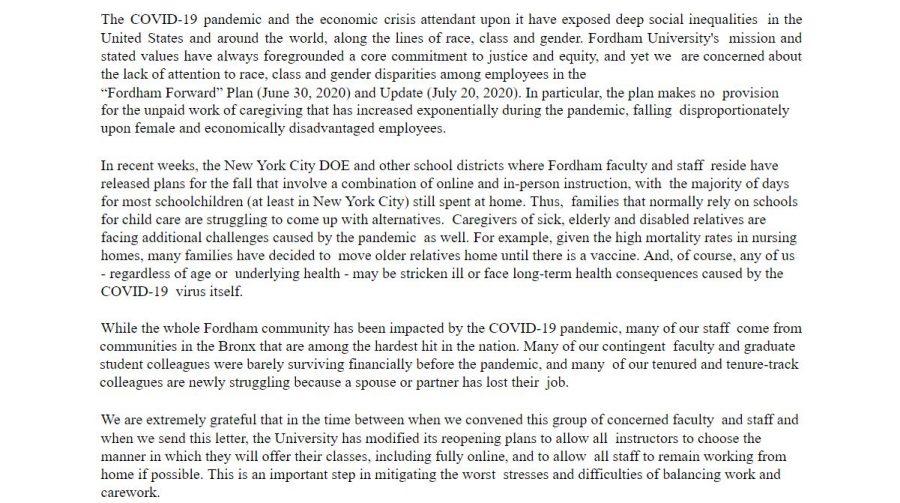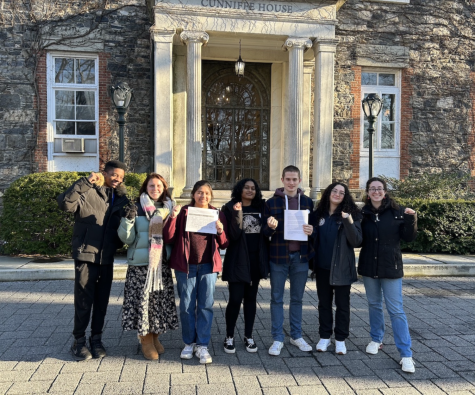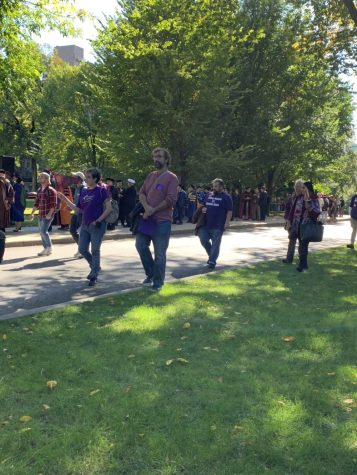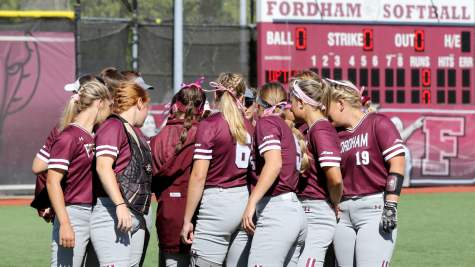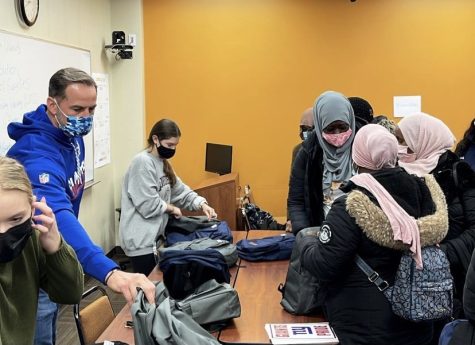Fordham Faculty Explain Care Work Accommodation Statement
Faced with teaching during the COVID-19 pandemic, Fordham faculty presented the administration with a series of demands. (Mackenzie Cranna/ The Fordham Ram
Fordham’s administration was given a statement at the beginning of the semester regarding care work accommodation signed by over 250 faculty members. This statement was a list of requests that the Fordham administration could do to help out faculty members who are caring for dependent children or family members in the midst of teaching in the COVID-19 pandemic.
The statement had demands ranging from a public acknowledgement of the difficulties of teaching online while caring for dependents to requests for financial assistance when it comes to dependent care.
The statement formed when a group of faculty caregivers at Fordham began to talk about the difficulties that they were experiencing.
The statement was mostly circulated around by the faculty of the Graduate School of Arts and Sciences; however, anyone was welcome to join or sign the statement.
Back in October, the group of faculty had a meeting with administration to discuss these requests.
“The meeting was very positive and we had a follow up meeting,” said one original writer of the statement. “We are still waiting for a response from the first request, yet to get a substantive response for evaluation, the internal funding issue is still open. Those are the issues that seem off the table. HR wants to work with us to find other solutions.”
The original statement of care work asked the administration to issue a public statement recognizing the extra burdens of care work during the pandemic.
“When the University refuses to acknowledge this reality, it perpetuates the idea that the normative person who matters is unencumbered by the demands of caregiving,” read the statement. “As the University struggles to live out its commitment to embodied human life in all of its complexity, simply recognizing carework is an essential step.”
In order to accommodate faculty concern for safety, the administration has given faculty options on how they want to teach their class.
“Faculty are asked to specify the modality in which they prefer to teach their courses this fall — in-person, online, or a hybrid of the two,” said Bob Howe, assistant vice president for Communications and special adviser to the president. “Chairs and program directors will work with deans to determine which courses should be prioritized for in-person teaching in order to best serve our students. Classrooms will be assigned to support those course sections that will make maximum use of on-ground facilities. Academic Records will post the modality of all courses so that students can consider changing their registration to better align with their own plans and preferences.”
Despite their ability to choose the modality for which their class is being taught in, some individual professors are still having to split their time between dependent care and teaching.
“Many of us had kids to care for over the summer and didn’t have the same time as someone doesn’t [have kids] to prepare for our courses as someone who didn’t,” said Asato Ikeda, an associate professor of art history and one of the authors of the statement.
As part of the original statement, there was a request for financial assistance on how to deal with this burden. Fordham gives out internal grant money; however, many times it can’t be used for things such as childcare.
Without babysitting subsidies or grant money, trying to get childcare can become extremely difficult and burdensome.
“Many of us are spending upwards of $500 on external childcare,” said Margaret Schwartz, a professor of communications and media studies and one writer of the statement.
Besides the financial and work level burden, being a caregiver in times like this has emotional strain on a person.
“[A caregiver is] juggling a lot of emotional labour,” said Schwartz. “The last person to get what they need is the caregiver.”
However, the issue of care work is not one that is exclusive to faculty members.
“Students are adjusting, the transition to online classes is challenging. We’ve been impressed by students. The issue of caregiving also extends to students,” said Diana Kamin, an additional writer of the statement and a communications and media professor.
In addition to students, other staff members are being affected as well.
According to many of the writers of the statement, childcare and supporting faculty members with dependents is a problem that many people close to the issue hope is reevaluated, even once the pandemic is over.
“The Office of The Provost is in ongoing meetings with faculty on these issues,” said Howe.
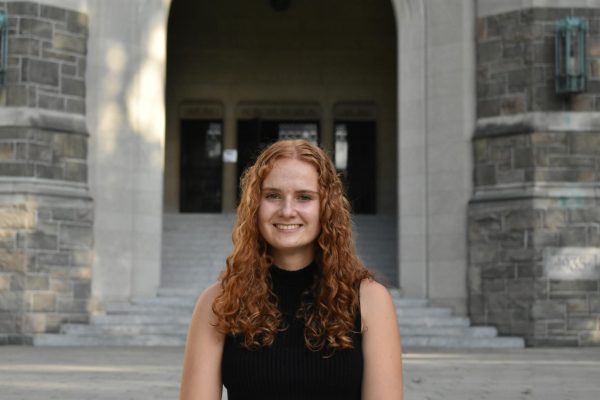
Isabel Danzis is a senior from Bethesda, Md. She is double majoring in journalism and digital technologies and emerging media. The Ram has been a very...





































































































































































































